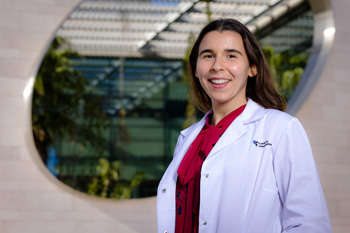L'Oréal Portugal Medals of Honor for Women in Science

The names of the four young Portuguese researchers who won the 17th edition of the L'Oréal Portugal Medals of Honor for Women in Science were revealed today, February 24, at an online awards ceremony. The winners are Joana Carvalho from the Champalimaud Foundation, Margarida Abrantes from the Faculty of Medicine of the University of Coimbra, Inês Fragata from the Center for Ecology, Evolution and Environmental Change (cE3c) - Faculty of Sciences of the University of Lisbon and Liliana Tomé from the Faculty of Sciences and Technology of the New University of Lisbon. The award-winning researchers, who hold doctorates and are aged between 28 and 37, were selected from 97 candidates by a scientific jury chaired by Alexandre Quintanilha. Each of the winners received a cash prize of 15,000 euros.
This initiative has its origins in a partnership between L'Oréal and UNESCO, signed in 1998, "L'Oréal-UNESCO For Women in Science". In 2004, the L'Oréal Portugal Medals of Honor for Women in Science appeared in Portugal, an initiative that brings together L'Oréal Portugal, the UNESCO National Commission and the FCT - Foundation for Science and Technology. In 16 years, 57 young female researchers have been awarded in Portugal.
Winners of the 17th edition of the L'Oréal Portugal Medals of Honor for Women in Science:
Joana Carvalho
28 years old
Researcher at the Champalimaud Foundation
Around 20% of the human brain is dedicated to vision, but does this ability to process visual information remain after sight loss? This is one of the questions posed by Joana Carvalho who, with the project she has now been awarded, wants to understand how the adult brain reorganizes itself to respond to situations of vision loss, what factors favor it and how this restructuring takes place over time. The answers she is looking for are essential to understanding how brain plasticity works in these adults who have lost their sight. With a PhD in computational neuroscience from the University of Groningen in the Netherlands, Joana Carvalho is a researcher in the Champalimaud Foundation's "Preclinical Magnetic Resonance Group".

Margarida Abrantes
37 years old
Professor at the Faculty of Medicine of the University of Coimbra
Are people with hereditary breast and ovarian cancer syndrome more sensitive to the ionizing radiation they are exposed to during diagnostic tests? Hereditary breast and ovarian cancer syndrome results from a mutation in the BRCA genes. Those who inherit it have a greater history of cancer in the family and an increased likelihood of suffering from cancer. Once identified, these individuals are regularly monitored, particularly through diagnostic imaging techniques, but these tests involve exposure to ionizing radiation. What Margarida Abrantes wants to understand, with the project she has now been awarded, is whether people with hereditary breast and ovarian cancer syndrome, and specifically those who have a mutation in the BRCA2 gene, may be more sensitive to the effects of radiation, compared to individuals without this mutation. Margarida Abrantes obtained her doctorate in Health Sciences in 2013 and is currently a professor at the same institution where she studied, the Faculty of Medicine of the University of Coimbra.

Inês Fragata
35 years old
Researcher at cE3c - Center for Ecology, Evolution and Environmental Change, Faculty of Sciences, University of Lisbon
What impacts does cadmium in the soil have on the plants that absorb it and the herbivores that feed on it? In an attempt to answer these and several other questions about the impacts of heavy metals in the soil on agricultural crops and their ecosystems, Inês Fragata will focus on a specific case and study the impacts of cadmium on tomato crops and on spider mites, tiny herbivores that feed on hundreds of plant species - including tomatoes and many other important agricultural crops - devastating them. Inês Fragata received her PhD in Evolutionary Biology in 2015 from the Faculty of Sciences of the University of Lisbon and returned to this institution in 2019 as a researcher at cE3c, after three years at the Instituto Gulbenkian de Ciência.

Liliana Tomé
35 years old
Researcher at LAQV-REQUIMTE - Associate Laboratory for Green Chemistry, Faculty of Science and Technology, Universidade Nova de Lisboa
How can we isolate and capture the CO2 released from power plants more effectively, preventing it from escaping into the atmosphere? The increase in greenhouse gas emissions and the impacts they cause - from rising temperatures and extreme weather events to the rise and acidification of the oceans - make it urgent to reduce emissions and find more efficient ways of capturing the gases we emit, particularly carbon dioxide (CO2). Liliana Tomé received her doctorate in Engineering and Technology Sciences from the António Xavier Institute of Chemical and Biological Technology (ITQB NOVA) in 2014, and stayed at the institute as a researcher. In 2018, after being awarded an individual Marie Curie Studentship , she went to POLYMAT, at the Universidad del País Vasco, and in 2020 she returned to Universidade Nova.